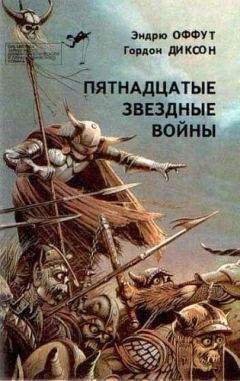Герберт Шиллер - Манипуляторы сознанием
5 Daniel Bell. The Balance of Knowledge and Power. — "MIT Technology Review", VI. 1969, pp. 43—44.
6 "New York Times", 5. VIII. 1970.
7 "Los Angeles Times", 21. IX. 1970.
8 Staughton Lynd Again— Don't Tread On Me. — "Newsweek", 6. VII. 1970, p. 31.
9 Theodore Roszak. The Making of Counter Culture, New York. 1969.
10 "Advertising Age", 8. VI. 1970, p. 44.
11 "New York Times", 14 and 21. XI. 1969.
12 "Вопросы, поднимаемые мною сегодня, должны были быть подняты теми американцами, которые традиционно считают, что защита свободы слова и свободы печати есть область их особой от- ветственности". "New York Times", 14. XI. 1969.
13 Raymond B. Nixon testimony before the Senate Subcommittee on Antitrust and Monopoly. Washington, pp. 2841—2842.
14 Bryce Rucker. The First Freedom, Carbondale, 1968, pp. 140—157.
15 "The Rich Rewards of Pioneering...", Television, III, 1968, pp. 27-51.
16 "New York Times", 21. XI. 1969.
17 "Rich Rewards...", pp. 27-51.
18 Arthur C. Nielsen. Greater Prospects Through Marketing Re- search, address before the Newcomen Society. Chicago, 30. IV. 1964.
19 J. K. Galbraith. The New Industrial State. Boston, 1967.
20 William Haley. News and Documentaries on U. S. Television, Survey of Broadcast Journalism, 1968—69. New York, 1969, p. 60.
21 "New York Times", 14. XI. 1969.
22 "Broadcasting", 15. IV. 1969, pp. 23-26.
23 Ibid.
24 "Television Age", 23. IX. 1968, p. 29.
25 Ibid., p. 29.
26 "Broadcasting", 31. VIII. 1970, p. 57.
27 "Variety", 19. XI. 1969, p. 1.
28 Ibid., p. 47.
29 Edwin Diamond. New York.
30. V. 1971, 30 "Variety", 29. VII. 1970, p. 1.
31 "Variety", 31. XII. 1969.
32 "New York Times", 27. VI. 1970.
33 "Los Angeles Times", 28. VI. 1972.
34 "New York Times", 24. VIII. 1970.
35 "Los Angeles Times", 20. IX. 1970.
36 Jules Witcouer. Nixon Fall Campaign Strategy Takes Shape. — "Los Angeles Times", 24. VIII. 1972.
37 Richard Halloran. Tactics Disputed In Fight To Win Release of P. O. W.'s. - "New York Times**, 7. VI. 1971.
38 "New York Times", 20. XI. 1969.
39 "Modern Communications and Foreign Policy". Washington, 1967, pp. 60—61.
40 Richard M. Freeland. The Truman Doctrine and the Origins of McCarthyism. N. Y., 1972, p. 89.
41 "The Future of United States Public Diplomacy", Washington, 1968, p. 4.
42 Stuart Symington. Congress" Right to Know. — "New York Times Magazine*, 9. VIII. 1970, p. 7.
43 Richard L. Tobin. The Coming Age of News Monopoly. — "Sa- turday Review", 10. X. 1970, p. 51.
44 "New York Times", 23. XII. 1972.
45 "New York Times" 20. XII. 1972.
46 "New York Times'5, 23. XII. 1972.
47 "New York Times", 9. X. 1970.
48 "U.S. Government Information Policies and Practicies — Problems of Congress In Obtaining Information From the Executive Branch", part 8. Washington, 1972, p. 2940.
49 William S. Moor he ad. Congressional Record. 25. X. 1972, pp. E 8940-8941.
Глава восьмая1 Harold Lasswell. Policy Problems of a Data—Rich Society. — "Information Technology in a Democracy". Cambridge, 1971, pp. 187— 197.
2 John C. Merill and Ralph L. Lowenstein. Media Messages and Men. New York, 1971, pp, 260-261.
3 Stuart Umpleby. Citizen Sampling Simulation: A Method for Involving the Public in Social Planning. — "Policy Sciences Г, N 3, 1970, pp. 361-375.
4 "Minerva: A Participatory Technology", исследовательский проект, представленный Центром политических исследований Национальному научному фонду (1. II. 1971 г.)
5 James W. Garey and John J. Quirk. The History of the Future, in Communications Technology and Social Policy. New York, 1973.
6 Sackman. Mass Information Utilities, p. 52.
7 Morry Roth. Pie—In—Sky Cable TV Comes Down to Earth: Hitch Now Is Capital. — "Variety", 24. V. 1972, p. 38.
8 Ralf Lee Smith. CATV: Its Impact On Existing Technologies and Institutions. — "Communications Technology".
9 Lee Metcalf. United States Senate. — "Congressional Record", 28. VI. 1972, S. 10432-10446.
10 "Congressional Record", 30. III. 1972, pp. E 3169—3175.
11 Thomas De Baggio. Corporate Secrecy: Issue for the Seventies.— "Nation", 28. II. 1972, p. 267.
12 Robert Boguslaw. Systems of Power and Power of Systems. — "Information Technology", pp. 427—428.
13 George Kozmetzky and Timothy W. Ruefli. Newer Concepts of Management, Profits, Profitability. — "Information Technology", New York, 1972, p. 91.
14 Boguslaw. Systems of Power..., p. 429.
15 Carey and Quirk. History of the Future.
16 Edwin B. Parker. Assessment and Control of Communications Technology. — "Communications Technology".
17 Edwin B. Parker. On-Line Polling and Voting. — "Planning Community Information Utilities". New York. 1972.
18 "Los Angeles Times", 15. III. 1972.
19 Stanley E. Cohen. Contrary To Some Fears, Madison Ave. Is Safe and FTG Hearings End. — "Advertising Age", 22. XI. 1971, p. 452.
20 „Когда я попытался получить экземпляр протокола слушаний, то Федеральная торговая комиссия уведомила меня, что я могу ознакомиться с текстом в офисе комиссии в Вашингтоне (я живу в Калифорнии) или купить экземпляр у "Алдерсон репортинг компани", заплатив за него несколько сот долларов".
21 Michael Tanzer. The Sick Society: An Economic Examination. New York, 1971.
22 Lasswell. Policy Problems, p. 191.
23 John Curley. "The Future of American Capitalism. — "Quar- terly Review of Economics and Business", XII. 1972, pp. 15—16.
24 Peter Kihss. Nixon, In Church, Praised By Peale As A Peace- maker. — "New York Times", 27. XI. 1972.
Часть II
1 Immanual Wallerstein. "Class-Formation in the Capitalist World Economy". Toronto, August 18—25, 1974, p. 1—2.
2 David Ogilvy. "Confessions of a Magazine Reader". — "Reader's Digest promotional brochure", September 1974.
3 William H. Read. Transnational mass media. To be published.
4 Elisabeth Fox de Car dona and Luis Ramirо Beltran. Towards the Development of a Methodology to Diagnosis (sic) Public Communications Institutions. Cologne, September 1—4, 1975, p. 29.
5 David Kunzle. "Introduction to the English Edition". — Ariel Dorman and Armand Mattelart. How to Read Donald Duck: Imperialist Ideology in the Disney Comic. New York, 1975, p. 14.
6 Raymond B. Nixon. Education for Journalism in Latin America. New York, Council on Higher Education in the American Republics, Institute of International Education, 1971.
7 Leroy Pope. Business Schools Go Multinational. — "San Diego Evening Tribune", August 15, 1975, Section A—15.
8 Karl P. Savant. The Potential of Multinational Enterprises as Vehicles for the Transmission of Business Culture. — Karl P. Saufant and F. G. Lavit (Eds). The Politics of Multinational Enterprises. Frankfurt, in press.
9 Rita Cruise O'Brien. Domination and Dependence in Mass Communication: Implications for the Use of Broadcasting in Developing Countries. ICD Discussion Paper № 64. Brighton, University of Sussex, Institute of Development Studies, October, 1974.
10 Juan E. Corradi. Cultural Dependence and the Sociology of Knowledge: The Latin American Case. — International Journal of Contemporary Sociology, 1971, 8 (1), pp. 35—55.
11 Ibid.
12 "Time", June 30, 1975, pp. 55-56.
13 Dave Anderson. Malaysian Promoter Has a Way With Money.-*» "International Herald Tribune», June 27, 1975.
14 Evelina Dagnino. Cultural and Ideological Dependence: Building a Theoretical Framework. — F. Bonilla and R. Girling (eds.j, Struggles of Dependence. Stanford, 1973.
15 Ibid.
16 Tilford Gaines. Economic Report. New York, 1975.
17 Hamid Moulana. Trends in Research on International Communication in the United States. — "Gazette (Amsterdam)", 1973, vol. 19 (2), pp. 79—90.
18 Glen H. Fischer. Public Diplomacy and Behaviorial Sciences. Bloomington, 1972, p. 7.
19 Ibid.
20 Ibid, p. 8.
21 Ibid, p. 44.
22 Ibid, p. 20.
23 Wilson P. Dizard. Which Way to the Future — "USIA Communicator" 1973, vol. 1 (4), July, pp. 11-13.
24 "Control of the Direct Broadcast Satellite: Values in Conflict". Palo Alto, Program on Communication and Society, 1974.
25 "International Information, Education and Cultural Relations: Recommendations for the Future". Washingtin, D. C. George- town University, Center for Strategic and International Studies, 1975, p. 12.
Глава вторая1 John S. Knight. World Freedom of Information, Speech presented in Philadelphia, April 16, 1946. Published in "Vital Speeches", 1946, vol. 12, pp. 472-477.
2 Palmer Hoyt. Last Chance, Speech delivered bevore the Jack- son County Chamber of Commerce, Medford, Oregon, Sept. 18,1945. — -Vital Speeches", 1946, vol. 12, pp. 60—62.
3 James Lawrence Flay. A Free Flow of News Must Link the Nations. — "Free World", 1944, vol. 8 (2), p. 168.
4 "Business Week", August 4, 1945, pp. 32, 34, 41.
5 Quoted in "Charted for a Free Press". — "Newsweek", December 11, 1944, p. 88.
6 "Department of State Bulletin", 1946, vol. 14, (344), February 3, p. 160.
7 Quoted by John S. Knight, op. cit., p. 476.
8 Report of the United States Delegates to the United Nations Conference on Freedom of Information. U. S. Departament of State Publication 3150, International Organization and Conference Series 111. 5. Washington, 1948.
9 John S. Knight, op. cit., pp. 472—473.
10 Kirk H. Porter and Donald Bruce Johnson. National party platforms, 1840-1964. Urbana, 1966, pp. 404, 413.
11 Congressional records, 90-th Congress, 8044 : 58, Stat. (pt. 2), 1119.
12 "The New York Times", November 29, 1944.
13 "Editor and publisher", December 2, 1944, p. 7.
14 "The New York Times", November 29, 1944.
15 "Editor and publisher", April 21. 1945, p. 15.
16 Report of the United States delegation to the Inter-American Conference on problems of war and peace (Mexico City, Mexico, February 21 — March 8, 1945). U. S. Departament of State Publication 2497, Conference Series 85. Washington, 1946, p. 21.




